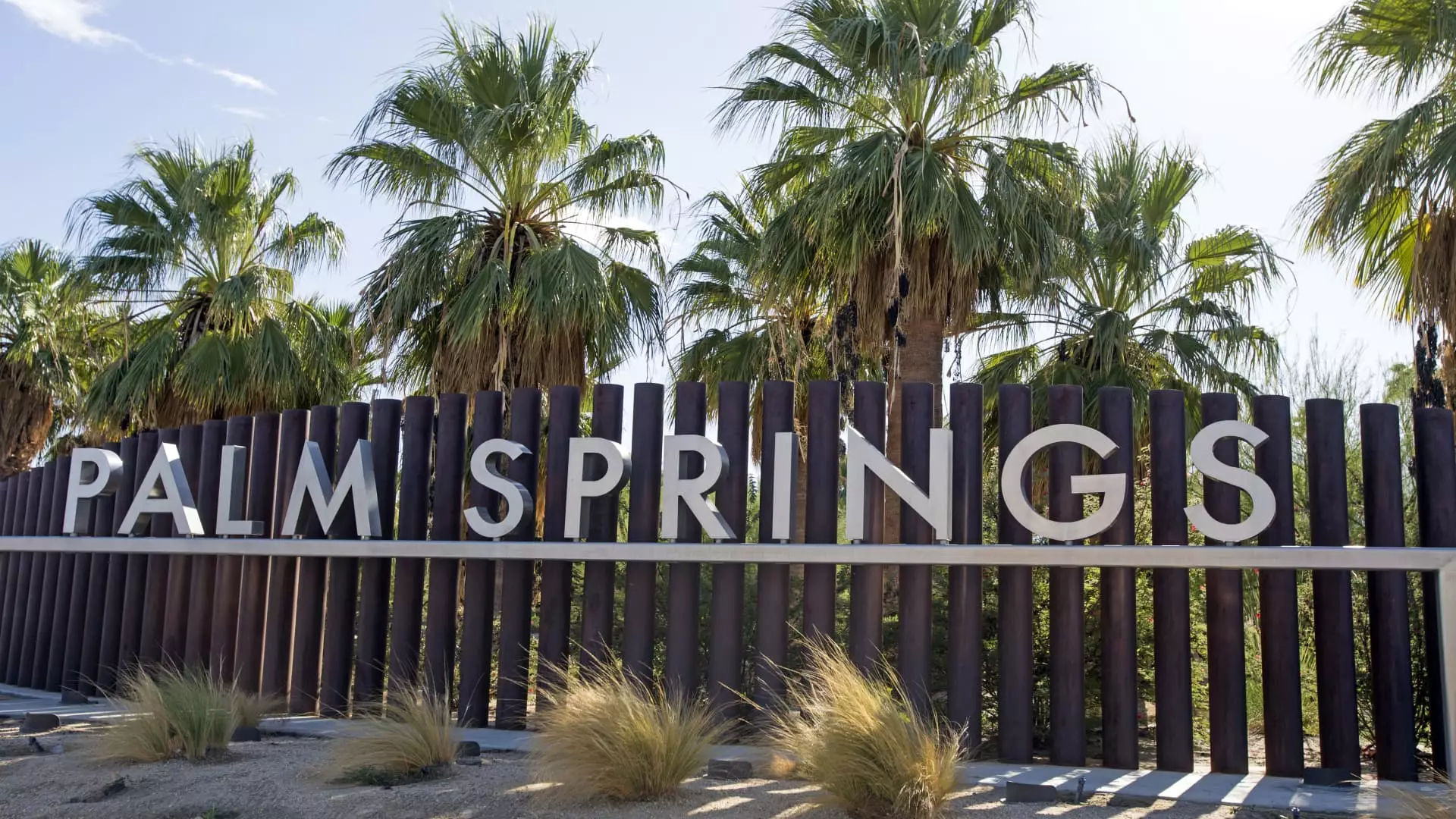The recent explosion in Palm Springs, California, that left one person dead and injured five others serves as a brutal reminder of the persistent violence that plagues our society. Described by authorities as an “intentional act of violence,” the blast not only obliterated physical structures but also shattered the sense of safety within a community ostensibly dedicated to healing and healthcare. Palm Springs Police Chief Andy Mills addressed the scene, revealing that the explosion’s impact was so severe it could be felt blocks away. Such powerful violence acts as a grim paradox in a city known for encouraging well-being, reflecting deeper societal issues that we cannot ignore.
This incident occurred near a cluster of medical facilities, including the American Reproductive Centers (ARC), a fertility clinic that, thankfully, reported no injuries among its staff. However, the mere existence of such targeted violence exposes a fissure in the societal fabric—one that prioritizes aggression over compassion. Despite the absence of immediate evidence regarding the motivations behind the explosion, one cannot help but wonder whether this was a targeted assault against an institution representing hope for many families. As we navigate the aftermath of this tragedy, we must grapple with the implications of a world where violence weaponizes reproductive rights.
The Fragility of Safety in Healthcare
As distressing as it is, this event raises alarm bells, highlighting the vulnerability of healthcare facilities in an era marked by escalating hostility toward women’s health services. The notion that such sanctuaries could become battlegrounds is unfathomable. It’s a poignant reflection of a society caught in ideological wars, where the consequences of extremism manifest in horrific outbursts like this. The public outpouring of support following the incident demonstrates a community grappling with the shock of violence entwined with essential care.
Public officials, including California Governor Gavin Newsom, have been briefed on the situation, underscoring the need for immediate attention to issues surrounding hate-driven violence. Attorney General Pamela Bondi condemned the attack, echoing the sentiment that violence against a fertility clinic is “unforgivable.” Yet, merely labeling these acts as unforgivable does not suffice. What systemic changes will follow this acknowledgment? Lip service alone will not solve an epidemic of violence that too many have come to regard as part of our daily landscape.
A Call for Accountability and Reflection
In this tragic landscape, we must ask ourselves: how do we, as a society, hold accountable those who perpetuate this culture of violence? It is now more essential than ever to foster discussions that bridge divides rather than deepen them. The explosion serves as a wake-up call, reminding us that women’s health—particularly reproductive rights—is still a flashpoint of contention across the United States. The attack on the fertility clinic is representative of a broader societal illness that thrives on division and intolerance.
Every explosion has a resonance that extends beyond its immediate aftermath. For too long, issues surrounding reproductive health have been politicized to the detriment of families and individuals seeking care. This incident speaks louder than words: it screams at us to evaluate our collective response to threats against vulnerable communities. If we, as a society, fail to take action in confronting this violence, we may just be complicit in allowing the cycle to perpetuate.
Investigative Measures and Community Response
As law enforcement agencies, including the FBI and the Bureau of Alcohol, Tobacco, Firearms and Explosives, descend upon Palm Springs to investigate, the community is left to process their loss and fear. Emergency crews are working tirelessly, yet we cannot forget that recovery will not begin at the scene of destruction alone. It will require active participation from all sectors of society—local governments, healthcare providers, and citizens alike—to dismantle the structures that allow this kind of violence to thrive.
In the wake of this tragedy, we must foster a dialogue about our priorities. This incident is about more than immediate impact; it is a wake-up call imploring us to examine the values we uphold. We cannot afford to turn a blind eye to extremist rhetoric and violence masquerading as a political statement. The time for change is now, and it begins with each of us demanding that violence be met not with acceptance, but with outrage and action.

